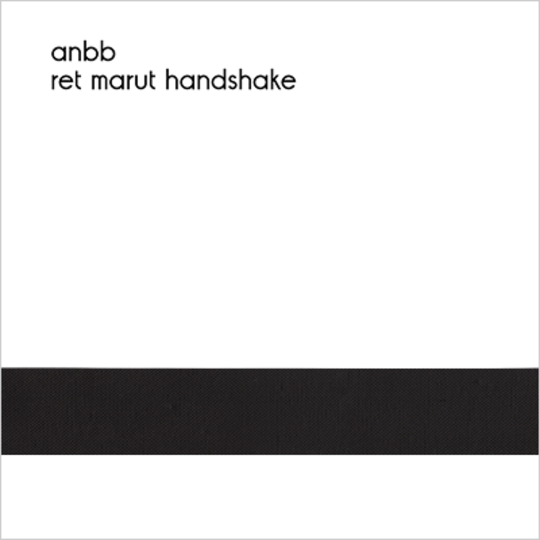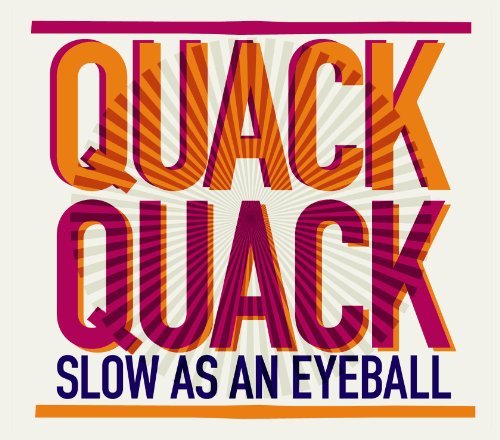Ret Marut Handshake represents a confluence of two major streams within German avant-garde music. Blixa Bargeld is founder of industrial expressionists Einsturzende Neubaten; he has also played guitar with Nick Cave and the Bad Seeds and has collaborated with Swans vocalist Jarboe. Alva Noto is an alias of Carsten Nicolai, electronic composer, visual artist and founder of austere pointillist electronic label Raster Noton. It’s an interesting proposition, and one can’t help wondering in advance of listening how the two approaches will sit together. Bargeld’s fraught but courageous existential response to industrialisation and modernisation is frequently charismatic and staunchly humanist, whereas Nicolai often uses the audible evidence of electricity, such as fax tones and modem or telephone sounds, to project a utopian landscape, subsuming the listener and by implication humanity in general into the soul of the machine.
In terms of reference points for collaborations between elder statespeople of the avant-garde with more contemporary electronic acts we should consider Mouse on Mars and Mark E. Smith’s Von Südenfed project, and also Resurrection River by VVV. As successful as the Von Südenfed records are in lending a charismatic ‘face’ to electronic music, there’s a boisterous, irreverent humour present in Smith’s rantings and Mouse on Mars’ frequently jocular but quietly subversive referencing of dance idioms. From the dark, foreboding timbre of the distorted vocal, and the ominous swelling tones which open the title track of Ret Marut Handshake, it’s clear that we’re in a decidedly more introspective realm. As icy, granular textures sear through the mix a martial, stuttering rhythm enters, composed of clinically-manipulated digital noise and a juddering, relentless kick drum pattern. Bargeld begins to sing in a pentatonic blues style which occasionally borders on Sprechstime, and exudes a sniff of Alan Vega’s sleazy, sub-aquatic declamations. For this track at least, the VVV album (a collaboration between Vega and Pan Sonic) is a more appropriate touchstone.
Comparisons become more tenuous on hearing the next track, a cover of Harry Nilsson’s 'One', previously performed by American songstress Aimee Mann on the Magnolia soundtrack. Bargeld’s vocal is devoid of processing, and the sheer presence of the recording imbues it with an uncomfortable closeness: it feels like he’s whispering into your ear. The production is pure Alva Noto: cavernous bass underpins metronomic bleeps and nagging fragments of electronic interference, while fragments of microsound seep through to create breathy tones which swathe the voice. It’s an authoritative rendering which, through Bargeld and Nicolai’s mutual sensitivity, marks this record as a true collaboration rather than a simple juxtaposition.
The formula is altered again for 'Electricity is Fiction', in which spoken phrases from Bargeld are dissolved into a bath of modulation and delay, until they’re stripped of meaning and transmuted into a mere device for instilling confusion and disorientation in the listener. The beat is truly relentless, with a restless insistence that recalls the more dancefloor-orientated work of Messrs Brown, Booth and friends under the Gescom moniker. Bargeld is in keen Dadaist form, juxtaposing the track title with out-of-context scientific pontifications. If my ears serve me correctly, in a particularly hilarious moment of absurdist inspiration he seemingly whips the phrase “Old man is beard” out of the ether.
Arrangements are stripped down to something approaching minimalism for the closing couplet of 'Bernsteinzimmer' and 'I Wish I Was a Mole in the Ground', the former utilising frantic but barely-audible whispers under glacial, magisterial synth lines. It recalls the emptiness of public spaces late at night as a streetlight flickers over smooth architectural lines, compounding the rising sense of paranoia and alienation. The latter is an interpretation of a traditional American folk song, once covered by Bob Dylan. Nicolai’s input is limited to a savage, wildly-panning bass pattern and a clipped slice of white noise. By comparison to this austere accompaniment the vocal melody sounds trite and out of time, taking on a disarming but cloying quaintness which ultimately just serves to implant its barbs more firmly under the skin of the listener. The lyrical content of the piece does plenty to enhance the unsettlingly surreal mood, especially when Bargeld changes this line to a first-person perspective: “_If I’m a railroad man then I’ll kill you when I can, and drink up your blood like wine._”
I’d recommend this record to anyone wishing to find an entry-point to the ultra-modern, sometimes faceless phenomenon of modern electronic composition: the uncompromisingly contemporary sound palette is not only reconciled but combined effortlessly with more traditional performance elements to create an emotive, disturbing and highly charismatic body of work. Together, Nicolai and Bargeld display great inventiveness in balancing modern techniques for textural and rhythmic exploration, with contextual sensitivity, cultural awareness and human expressivity.
-
8Barry Toxteth's Score






















